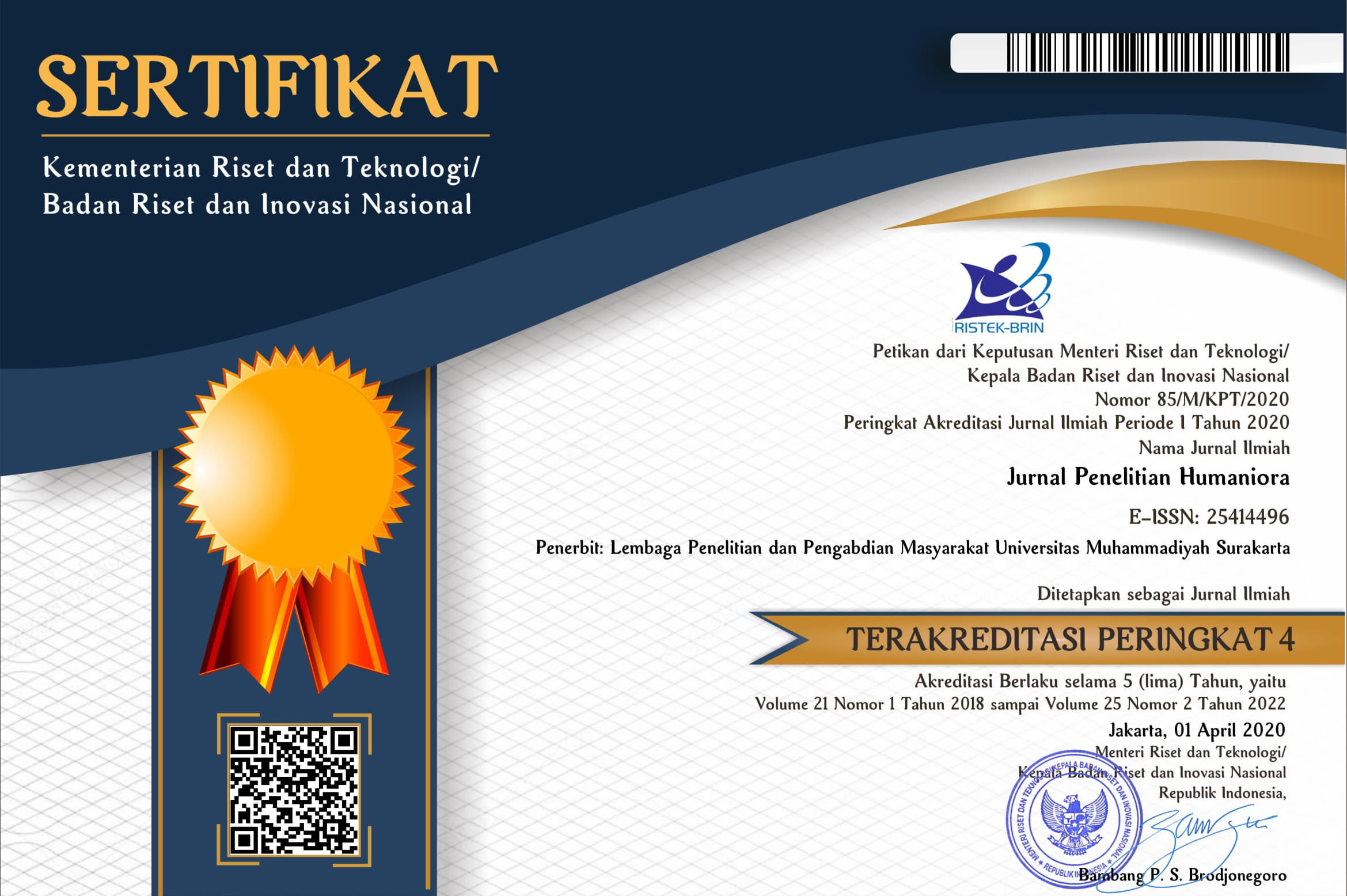LEARNING MOTIVATION AND ENGLISH ACHIEVEMENT OF STUDENTS AT POLITEKNIK NEGERI SEMARANG CENTRAL JAVA
Ridha Fadillah(1*)(1) IAIN Antasari Banjarmasin
(*) Corresponding Author
Abstract
The aim of this study was to investigate the correlation between learning motivation and English achievement of students of Mechanical Engineering at Politeknik Negeri Semarang, Central Java. The subjects of this study were 147 students aged seventeen to twenty one years old. The data were collected using questionnaire and analyzed using the Statistic Package for Social Science. The result indicate that the students’ motiva- tion in learning English was at moderate level. They were most motivated in learning situation, intrinsic interest, going abroad, immediate achievement, social responsibility, individual development, and the students were least motivated in information medium. There was no significant relationship between students’ learning motivation types and their English achievements as a whole. However, there is no significant positive correlations among immediate achievement, learning situation and students’ outcomes were indicated. In general, Politeknik Negeri Semarang students had low motivation in their English course but they still had good achievements. It was seen from the negative correlation between the two variables. In other words, the learning motivation does not influence their achievements.
Keywords
Full Text:
PDFReferences
Dörnyei, Z. 2001. Teaching and Researching Motivation. Harlow, England: Longman.
Dwaik, R. & Shehadeh, A. 2010. “Motivation Types among EFL Colleges Students: Insights from the Palestinian Context”. An-Najah Univ. J. of Res. (Humanities) Vol. 24(1): 333-360.
Gao, Y., and Zhao, Y. 2003. English Learning Motivation Types of Chinese College Students. Modern
Foreign Languages 26: 28-38.
Gao, Y., Zhao, Y., and Cheng, Y. 2007. “Relationship between English Learning Motivation Types and Self-Identity Changes among Chinese Students”. Tesol Quarterly Vol. 41, No. 1:
-155.
Gao, Y., Zhao, Y., Cheng, Y., & Zhou, Y. 2004. “Motivation Types of Chinese University Students”.
Asian Journal of English Language Teaching, 14, 45-64.
Gardner, R. C. 1985. “The Attitude/Motivation Battery: Technical Report”. Research Bulletin No.
Language Research Group, Department of Psychology, University of Western Ontario.
Gardner, R. C. & MacIntyre, P. D. 1993. “On the Measurement of Affective Variables in Second
Language Learning.” Language Learning, 43, 157-194.
Hashimoto, Y. 2002. “Motivation and Willingness to Communicate as Predictors of Reported L2
Use: The Japanese ESL Context”. Second Language Studies 20(2): 29-70.
Honggang, L. 2008. “ELF Motivations andAutonomy in English Learning:An Investigation of Chinese
Non English Major Undergraduates”. CELEA Journal Vol. 31 No. 5: 82-97.
Huang, S.C. 2008. “Assessing Motivation and Learning strategies Using the Motivated Strategies for Learning Questionnaire in a Foreign Language Learning Context.” Social Behavior and Personality Vol. 36(4), 529-534.
König, G. 2006. “Orientation, Motivation and Attitudes of Turkish University Students Learning a Second Foreign Language”. Zeitschrift für Interkulturellen Fremdsprachenunterricht [Online], 11 (1), 10 pp. Retrieved October 20, 2010 from http://www.ualberta.ca/~german/ ejournal/Koenig6.htm
Kwong, J. 1983. “Is Everyone Equal before the System of Grades: Social Background and Opportunities in China. The British Journal of Sociology, 34, 93-108.
Moiinvaziri, M. 2010. Motivational Orientation in English Language Learning: A Study of Iranian Undergraduate Students. Sirjan: Islamic Azad University. Retrieved October 10, 2010 from http://www.usingenglish.com/articles/motivational-orientation-in-english-language-learning.html
Article Metrics
Abstract view(s): 2748 time(s)PDF: 2555 time(s)
Refbacks
- There are currently no refbacks.











